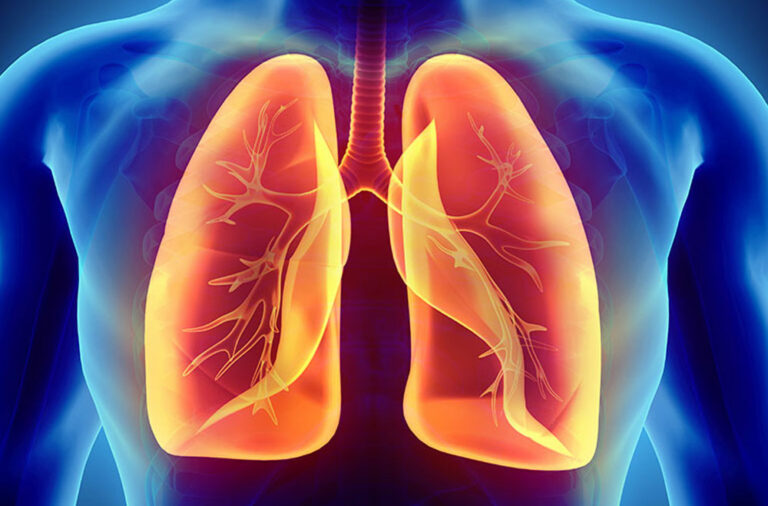Idiopathic Pulmonary Fibrosis
What is Idiopathic Pulmonary Fibrosis (IPF)?
Idiopathic pulmonary fibrosis (IPF) is the most common form of idiopathic chronic diffuse interstitial lung disease (ILD) in adults. Interstitial lung disease is a group of disorders characterised by infiltration of the pulmonary interstitium by cells, oedema or extracellular matrix.
Fibrosis is characterised by excessive deposition of extracellular matrix due to a disturbance in the repair response of wounds and connective tissue. Several organs can develop fibrosis, including the liver, kidneys, heart and lungs.
IPF is a disease characterised by progressive fibrosis of the lung parenchyma, irreversible, of unknown cause and confined to the lungs. This serious disease has a chronic, progressive course, with possible acute exacerbations.
IPF affects more than 200,000 people in Europe and the United States, and its incidence appears to be rising. In France, it affects between 5,500 and 9,000 people, with almost 1,800 new patients affected each year. There is no specific demographic profile, but the disease occurs more often in men, usually after the age of 60.
Idiopathic pulmonary fibrosis is a rare disease.
IPF is a very aggressive disease, which causes death within 2 to 5 years in half of all diagnosed cases, and for which there is currently no curative medication.

What are the clinical signs of IPF?
The most common symptoms are as follows:
- Breathlessness
- Dry, persistent cough
- Progressive weight loss
- Loss of appetite
- Digital clubbing
- Cyanosis
- Tiredness
What causes the disease?
The cause of this disease is unknown.
However, there are several factors that contribute to the onset of this disease:
- Smoking
- Environmental factors
- Comorbidities: diabetes, sleep apnea, gastro-oesophageal reflux
- Viral infections
